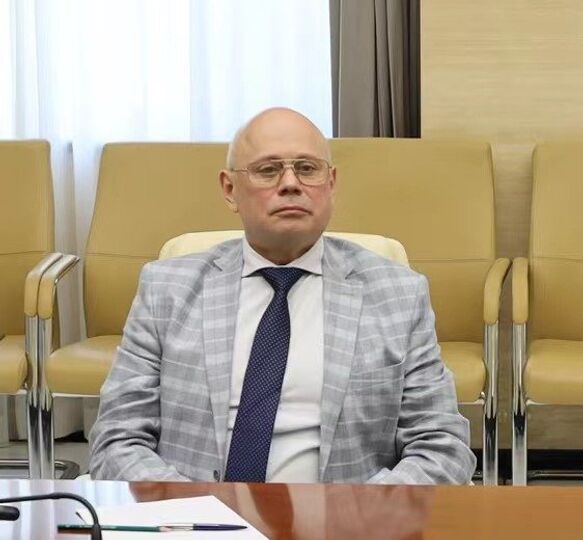The SCO Secretariat regards information security cooperation between the Shanghai Cooperation Organisation (SCO) member states as a priority, SCO Deputy Secretary-General Grigory Logvinov said in an interview with TASS News Agency regarding the 14th International IT Forum in Khanty-Mansiysk, which BRICS and SCO countries attended. The full text follows.
Question: Does the SCO regard collective cybersecurity activities by its member states as important and necessary in the new global reality?
Grigory Logvinov: Ensuring information security is a SCO priority in the ICT area.
The SCO member states started cooperating in cybersecurity back in 2006, when their foreign trade ministers set up an Ad Hoc Working Group on ICT. At that time, the SCO also established a working group of experts on international information security (IIS) to prepare an action plan for ensuring IIS and coordinating possible solutions to all aspects of this issue.
The importance of the SCO countries’ efforts in this sphere is growing in the new global reality, since the digital environment includes both possibilities and challenges that can do serious damage to the security of individuals, societies and states, and darknet is used for criminal, terrorist and aggressive military-political purposes to destabilise governments and involve young people in fraudulent schemes and terrorist groups.
The SCO platform has always been open for the concerned parties wishing to exchange experience in digital development, information security, the use of artificial intelligence, digital environment optimisation, the preservation of the IT ecosystem, data processing systems, the use of IT professionals, etc. The SCO member states are working on the vital task of creating some kind of cyber immunity, a formula that will allow them to effectively combat the use of ICT for illegal and hostile purposes, and to introduce the rules of responsible conduct on the internet.
Question: Are the SCO member states taking any practical steps in this sphere? With which international organisations is the SCO Secretariat cooperating or with which does it consider necessary to cooperate on these issues?
Grigory Logvinov: The member states are working together within the framework of the relevant UN negotiation structures and on other international platforms. The 2020 statement of the SCO Heads of State Council on cooperation in the sphere of IIS pointed out the importance of creating universal and legally binding instruments under the UN umbrella to ensure IIS and combat information crimes, such as a comprehensive international convention on countering the use of information and communications technologies for criminal purposes.
The SCO countries and delegates of the SCO Secretariat take part in the meetings of the UN Open-ended Working Group on security of and in the use of information and communications technologies. Our plans include consultations with the UN Office for Disarmament Affairs (UNODA) on the implementation of the programme of action to advance responsible state behaviour in the use of information and communications technologies in the context of international information security adopted at the UN General Assembly in 2022.
In 2022, a department on international information security was set up at the Executive Committee of the SCO Regional Anti-Terrorist Structure. In the future, we will establish a specialised body, which will be either fully independent or operate as an autonomous body of a Universal SCO Centre for Countering Security Threats and Challenges.
During the 2022 SCO summit held in Samarkand, Uzbekistan, the member states adopted the Cooperation Programme for the SCO Member States’ Authorised Bodies for Promoting Digital Literacy and the Programme of SCO Cooperation in Artificial Intelligence. The SCO countries are also drafting an agreement on intergovernmental cooperation in countering ICT crimes.
A statement on cooperation in digital transformation is being prepared at the initiative of India’s Chairmanship for the SCO Heads of State Council meeting to be held in New Delhi in early June 2023.
I would like to add that not only concerned agencies but also other platforms, such as Infoforum-Ugra, offer digital experts from SCO countries an opportunity to discuss joint projects for ensuring cyber security and strengthening the protection of their countries’ information infrastructure. The upcoming admission of the Islamic Republic of Iran and the Republic of Belarus to the SCO as full members will certainly boost our efforts in this area.
